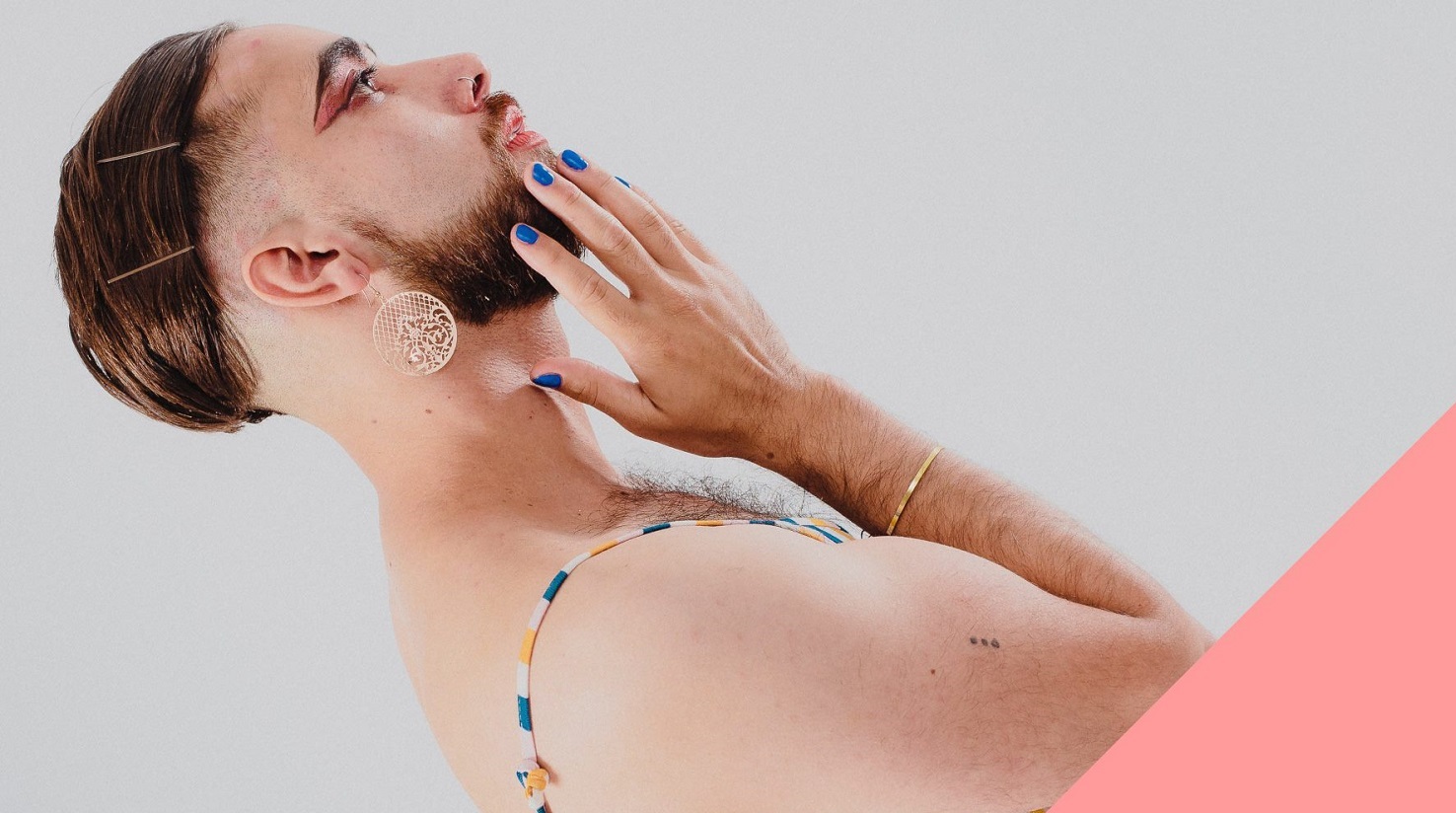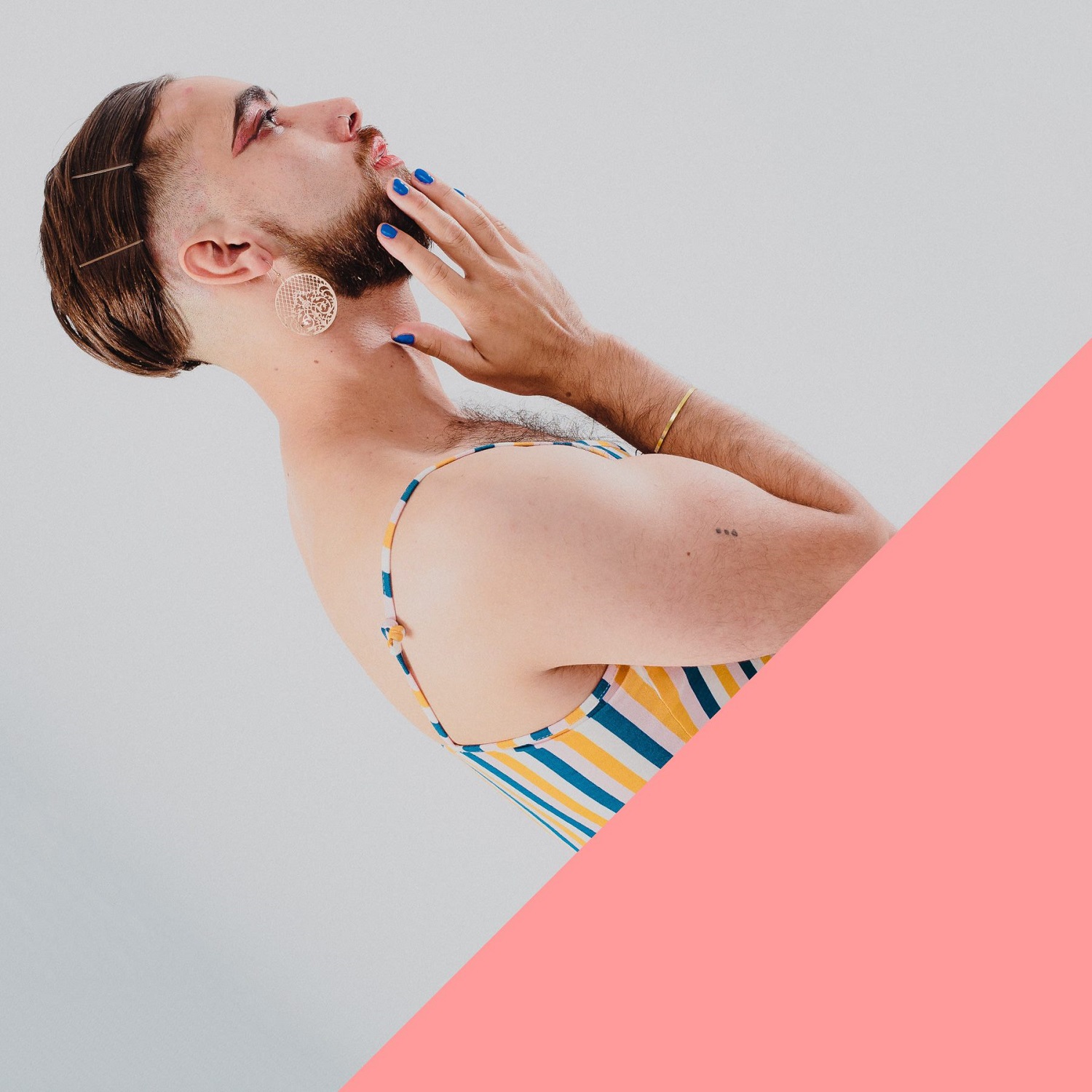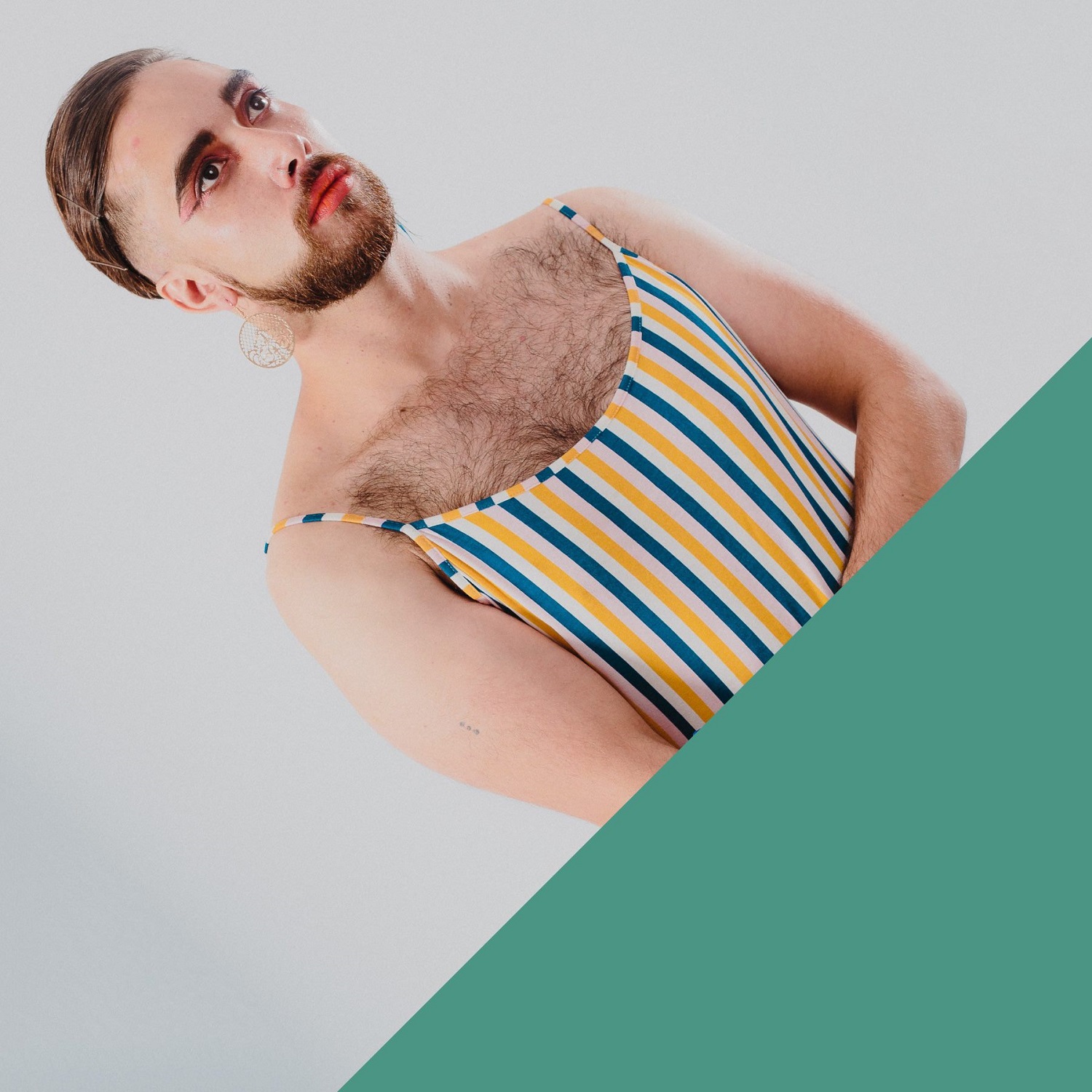Interview | Queer artist DYVR opens up about his new single ‘Shameful’ and challenging gender stereotypes
The video for 'Shameful' has been exclusively debuted here
By Steve Brown

Words: Steve Brown
Queer artist DYVR has opened up exclusively to Attitude about his new single ‘Shameful’ and gender stereotypes.
Inspired by music of his hometown of London, the minimal-electronic artist tackles the idea of masculinity and gender stereotypes in his fourth single ‘Shameful’.
Now, in an exclusive interview with Attitude, DYVR discusses his fluid sexuality, challenging gender stereotypes and how wearing nail polish could make a person feel uncomfortable but opens up on how he fought against criticism.
Your new single ‘Shameful’ is out now. What was the inspiration behind the song?
I started working on ‘Shameful’ quite a while ago. I was making some pretty big changes then. This was musically/sexually but also kind of bigger than that. My sexuality has always been fluid, but i’d spent so much time in one type of relationship that the person I had become over time just didn’t really match up with the life I was living.
I noticed all these barriers that i’d put up for myself as a result of my gender – that just wasn’t me. I started wearing make-up every now and again, and painting my nails.
I wasn’t trying to dress like a woman. I just wanted to let go of all these limitations that i’d put on myself because I was a man. There were a lot of people who were confused by this. I spent a lot of time explaining myself.
I found it amazing how something so simple as nail polish could make a person feel uncomfortable. That kind of motivated me you know? Like, ‘Screw you i’ll dress how I want!’. ‘Shameful’ became a kind of anthem for that motivation.
The video looks at how gender stereotypes change how we feel, do you still feel gender influences people’s understandings?
I think overall gender still influences a lot of our behaviours. So many of us are raised with pre-existing expectations based on whether we are a man or a woman. The video was directed by James Byrne. He’s a good friend of mine and his work is amazing.
A lot of the talks we had were to do with the internal conflict that narrow gender views can create. That is the conflict i’m trying to talk about in ‘Shameful’ – the difficulties we all face while reaching out of our cultural norms to find who we are as individuals. James did such an amazing job showing that visually.

You say it tackles the idea of modern masculinity, how would you describe modern masculinity?
Interpreting masculinity has become more difficult for me recently. In the past there had been this widely accepted version of what being male was and that was what I thought I had to be.
I saw these strong, emotionally distant men in films and TV all the time and really bought into that idea. I actually dropped some audio from an old Hollywood B movie in the song which I thought was a really good example of this.
As we’ve grown to understand the inherent issues with that interpretation, it’s being challenged more and more. This is a great thing – but it also results in a lot of men feeling like they are caught between the traditions of the older generations and desire of the current generation to create new realities for ourselves.
There are still so many men that are scared to show their vulnerabilities and depart from dated gender expectations. I think being a man now means truly trying to find your individuality, and your compassion.
The concept of masculinity has changed more recently then ever with more gender and sexually fluid people, do you think sexually fluidity will be fully excepted?
I’m always hopeful for a time when someone’s sexuality will be a way that they express themselves, rather than a label for others to identify them by. We’ve made so many positive steps. I think we will make even more.
You said that ‘Shameful’ is also about how men suppressed their emotions. There was a story recently about how a third of LGBT men have thought about taking their own lives over the last year, how does that make you feel as a queer artist?
I think just on a human level a statistic like that is always difficult to hear. It’s the painful truth for so many people in the LGBT community.
Personally, it makes me want to open up even more and be as vocal as I can about my sexuality. The more people that speak openly, the more likely it is that others will.
You identify as queer and you say the song has been relevant to your own journey…
My sexuality is fluid and isn’t defined by any particular gender. Learning to be open about that was a long journey for me. I was 18 when I first liked a guy and that was quite confusing for me.
I was dating a girl who I really liked and the idea of being sexually open just didn’t exist to me. The idea of being gay actually didn’t scare me at all – my brother had come out when I was young and my parents were really very supportive despite some of the extended family having issues with it.
As well as that, I grew up in London and was working in Soho. Most of my friends were gay. I only really went out to gay clubs. I feel so lucky to have grown up in that kind of world.
But feeling like I didn’t identify as straight or gay made it difficult for me to say anything to anyone. It took years for me to understand how to talk about it and finally start living in a way that felt natural to me. ‘Shameful’ draws on a lot from a time in my life when I was wasn’t being honest about who I really was.
Were you ever advised to hide your sexuality when trying to start your career?
When I started playing music, I wasn’t openly queer. As I’ve become more vocal about my sexuality I’ve found it important to let it flow into my music.
I’m surrounded by some pretty amazing and talented people who are always inspiring me to be authentic. I’m also incredibly lucky to be working with such wonderful people at Veta Records. They’ve been so on-board with the choices i’ve made to talk more publicly about my sexuality.

We are going through a sort of queer music movement with the likes of Olly Alexander, Hayley Kyoko and Troye Sivan releasing music, did you ever think we’d be at this level of out queer artists?
Yeah it’s a pretty amazing time. I work alongside some of the most talented queer artists like Benjamin Yellowitz and Amaroun who are absolutely killing it right now. It’s a really exciting time for queer artists because there are more people than ever before talking candidly about the issues at hand on an individual level.
The music is so personal you know? I feel like we were always going to get to a place like this. That doesn’t change how proud I am of that fact. Nor how excited I am for queer music in the future.
Do you think we will ever get to the stage where someone’s sexuality will not be even a topic for discussion in any job?
I really hope so. There is still so much weight added to sexuality – it’s often used to define a whole person. Like, you’re gay first and everything that you do is connected to or as a result of that fact. That’s in your job, your home life, your social interactions. I think we have to sort of un-learn the idea of needing a clearly defined box to put the people around us in. We just need to see the human first.
Still today, the LGBT community faces stigma around the world. How does it make you feel seeing people be persecuted for being who they are?
I suppose one of the potential problems with growing up in a relatively progressive city, is that it’s all the more difficult to understand why there are so many people that suffer because of their sexuality.
The bravery of any queer person in a society that criminalises their way of life is incredible. I don’t often speak in finite terms, but the persecution of any person based on their sexuality is disgraceful, and those of us who are able need to speak up.
Watch the video for ‘Shameful’ below:
